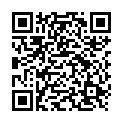|
|
|
| Module code: PIBWI95 |
|
|
2P (2 hours per week) |
|
5 |
| Semester: 5 |
| Mandatory course: no |
Language of instruction:
German |
Assessment:
Project work
[updated 19.02.2018]
|
KI627 (P222-0078) Computer Science and Communication Systems, Bachelor, ASPO 01.10.2014
, semester 6, optional course, technical
KIB-ROBP Computer Science and Communication Systems, Bachelor, ASPO 01.10.2021
, semester 6, optional course, technical
KIB-ROBP Computer Science and Communication Systems, Bachelor, ASPO 01.10.2022
, semester 6, optional course, technical
PIBWI95 (P221-0174) Applied Informatics, Bachelor, ASPO 01.10.2011
, semester 5, optional course, informatics specific
PIB-ROBP Applied Informatics, Bachelor, ASPO 01.10.2022
, semester 4, optional course, informatics specific
PIB-ROBP Applied Informatics, Bachelor, SO 01.10.2026
, semester 4, optional course, informatics specific
|
30 class hours (= 22.5 clock hours) over a 15-week period.
The total student study time is 150 hours (equivalent to 5 ECTS credits).
There are therefore 127.5 hours available for class preparation and follow-up work and exam preparation.
|
Recommended prerequisites (modules):
None.
|
Recommended as prerequisite for:
|
Module coordinator:
Dipl.-Ing. Dirk Ammon |
Lecturer:
Dipl.-Ing. Dirk Ammon
[updated 20.07.2011]
|
Learning outcomes:
After successfully completing this module, students will be familiar with the properties and effects of different sensors and actuators and how these can be modeled in software. Students will learn methods of navigation and mapping for mobile robots and how to use them. Students will be able to construct and program a mobile robot that fulfills a specific task.
[updated 19.02.2018]
|
Module content:
1. Theory
- History of robotics, overview of robotics,
- Sensors and actuators
- Evaluation of measured values and sensor fusion
- Odometry and dead reckoning
- Mapping methods
II. Practice
Creating a mobile robot Groups consisting of 2 students each receive the necessary equipment.
. Familiarization with the hardware and software by means of simple exercises and tasks
- Group-specific project
- Building and programming the robot, realization and test
- Documentation
- Lecture with presentation
[updated 19.02.2018]
|
Teaching methods/Media:
Lecture with PowerPoint slides in the theoretical part, supervised practical experiments during the practical phase, work in largely independent individual groups with accompanying project discussions during the realization.
[updated 19.02.2018]
|
Recommended or required reading:
NEHMZOW, Ulrich, Mobile Robotik, "Eine praktische Einführung", Springer Verlag Berlin-Heidelberg, 2002
GOCKEL, DILLMANN, Embedded Robotics, "Das Praxisbuch", Elektor-Verlag, Aachen, 2005
[updated 19.02.2018]
|
Module offered in:
SS 2016,
SS 2015,
WS 2013/14,
WS 2012/13,
WS 2011/12,
...
|


